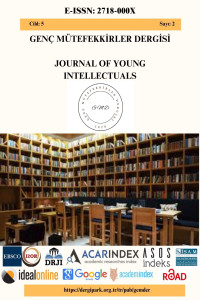Research Article
Review Article
Book Review
Issue Reviewers
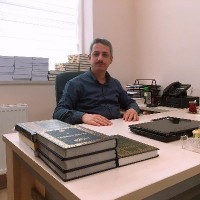
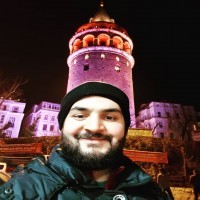

1978 Çorum-Kargı doğumluyum. İlkokulu köyümde tamamladıktan sonra sırasıyla 1996'da Kastamonu İmam-Hatip Lisesi, 2001 Marmara Üniversitesi İlahiyat Fakültesinden mezun oldum. 2002 yılında vatani görevimi tamamladıktan sonra 2003 yılında Düzce-Akçakoca'ya bağlı Davutağa köyünde imam-hatip olarak memurluğa başladım. Diyanet İşleri Başkanlığı görevde yükselme sınavıyla 2004 yılında vaiz olarak Kastamonu'ya tandım. 2008 yılında Diyanet İşleri Başkanlığı'na bağlı Trabzon-Akçaabat Dinî İhtisas Merkezi'nden mezun oldum. 2010-2015 yılları arasında Fransa-Strasbourg Ataşeliğine bağlı Haguenau kasabasında din görevlisi olarak görev yaptım. 2013 yılında kurumiçi sınavla uzman vaiz olduktan sonra 2017 yılında hafızlığımı tamamladım. 2018 yılında Eskişehir Osmangazi Üniversitesi Sosyal Bilimler Enstitüsü bünyesinde "Kur'ân'da Kellâ İle Başlayan Âyetlerin İncelenmesi" adlı tezle yüksek lisansımı tamamladım. 2019 yılında Bursa Uludağ Üniversitesi Sosyal Bilimler Enstitüsü bünyesinde doktora eğitimine başladım ve "Yûsuf b. Hilâl es-Safedî’nin “Keşfü'l-Esrâr ve Hetkü'l-Estâr” Adlı Tefsirinde Kur'ân'ı Yorumlama Yöntemi" isimli doktora tez çalışmamı 22. 08. 2023'te tamamladım. Ayrıca "Yûsuf b. Hilâl es-Safedî’nin Tefsirinde Hurûf-ı Mukatta’a Yorumu", "Yusuf B. Hilâl Es-Safedî’nin Keşfü’l-Esrâr ve Hetkü’l-Estâr Adlı Tefsirinde Münâsebâtü’l-Kur’ân", Yûsuf b. Hilâl es-Safedî’nin Tefsirinde Hurûf-ı Mukatta’a Yorumu ve "Kur’an’da Âhiret İnancının Tesisi Bağlamında “Kellâ Edatının Geçtiği Âyetlerin İncelenmesi" adlı çeşitli dergilerde yayınlanmış makaleler kaleme aldım. Evliyim ve üç kız çocuğuna sahibim. Orta düzeyde Arapça bilmekteyim. Şuan Kütahya ili Tavşanlı ilçesinde Uzman Vaiz olarak görev yapmaktayım.
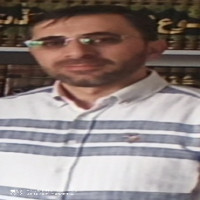
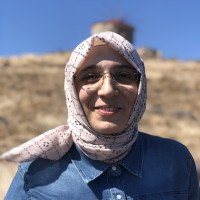


Habib Tekin 1989 yılında Almanya’nın Mainz şehrinde doğmuş, eğitim hayatının büyük kısmını yurtdışında geçirmiştir. 2009 yılında Almanya’nın Frankfurt şehrinde bulunan Max-Beckmann-Lisesi’nden mezun olmuştur. Aynı yıl Mannheim ve Ruprecht-Karls-Üniversitesi Heidelberg’de Çift Anadal Lisans ve Yüksek Lisans ortak programına kayıt olan Tekin, bu kapsamda Alman ve İngiliz Filolojisi derslerini almış, pedagojik formasyon’unu Pädagogische Hochschule Heidelberg Üniversitesi’nde tamamlamış ve Mart 2016 tarihinde Alman Federal Devleti’nin düzenlemiş olduğu devlet sınavını başarıyla tamamladıktan sonra Karlsruhe Eyaleti Öğretmenler Sınav Başkanlığı tarafından Almanca ve İngilizce Öğretmenliği bölümlerinden mezun olmuştur.
2010 yılında İngilizce dil bilgisini geliştirmek için İngiltere’nin Brighton ve Londra illerinde bulunmuştur. 2004 yılından 2009 yılına kadar devlet destekli bursu, 2009 yılından 2016 yılına kadar Federal Alman Devleti bursu almıştır. 2020 yılından itibaren ise Mannheim Üniversitesi üzere Alman Akademik Değişim Programı'ndan (DAAD) doktora tezi için burs almıştır. 2018-2021 yılları arasında Marmara Üniversitesi, Bilimsel Araştırmalar Projesi Birimi tarafından doktora tezini destekleyen proje kapsamında çalışmıştır.
2017 yılında Marmara Üniversitesi, Sosyal Bilimler Enstitüsü’nde Doktora programında kayıt olmuştur. Alman Dili ve Edebiyatı Anabilim Dalı’nda Yahudi yazar "Jakob Wassermann’ın Eserlerinde Yahudi Düşmanlığı İmgeleri" konulu tez çalışmasını Nisan 2021 tarihinde savunmuştur. Marmara Üniversitesi, Fen-Edebiyat Fakültesi, Alman Dili ve Edebiyatı Bölümü’nde Doçent olarak çalışmaktadır. İleri derecede Almanca ve İngilizce, orta derecede Fransızca ve Latince bilmektedir.
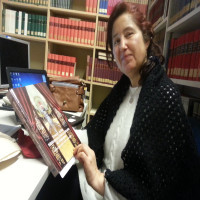
Kudret Altun, ilk, orta ve lise öğrenimini Kayseri’nin Bünyan ilçesinde ilmek ilmek örülen Bünyan halılarının kirkit seslerinin ikliminde tamamladı. Yükseköğrenimini İstanbul Üniversitesi Edebiyat Fakültesi’nde, yüksek lisans ve doktora eğitimini ise aynı şehirde İstanbul Üniversitesi Sosyal Bilimler Enstitüsünde tamamladı.
Birbirinden farklı kültürlerin mezcolduğu, Ortadoğu ve Avrupa ülkelerinde bulunarak bu ülkelerde görev yaptı. Yurt dışı serüvenine Kıbrıs, Lefkoşe Türk Öğretmen Koleji’nde başlayan yazar, İngiltere ile devam etti. Burslu öğrenci olarak gittiği İtalya Venedik Üniversitesi’nde (Dipartimento di Studi Eura Siatici) (1996/97) doktora üstü burslu öğrenci olarak çalıştı. 1999/2000 Amman Türk Kültür Merkezi yöneticisi olarak görevlendirilen yazar, burada Ortadoğu ve Arap kültürünü tanıma imkânı buldu. 2006 yılında, dokuz yıl önce öğrenci olarak gittiği İtalya’ya bu kez hoca olarak yeniden kavuşma imkânı bulan Altun, Venedik Doğu Dilleri Bölümü’nde öğretim üyesi olarak çalıştı. Osmanlı Türk kültür ve medeniyeti hakkında üniversitede (Ca’ Foscari University of Venice) konferanslar verdi. Çeşitli alanlarda çalışmalar yaparak Türk-İslam kültürünü Türkiye’nin sınırları dışına taşıyan akademisyen-yazar, Ca’ Foscari University of Venice, Yesevî, Yûnus Emre, Harem, Mevlânâ konulu konferanslar verdi. Ardından TİKA tarafından Bosna-Hersek Zenica Türkoloji Bölümü’nde 1 yıllığına öğretim üyesi olarak görevlendirildi. Orada Osmanlı’nın yetimi Bosna’ya âşık oldu. Dönüşünde davetli konuşmacı olarak Erciyes, Konya, Akşehir, İzmir… “Balkanlarda Türk izleri” tekrar Anadolu ile buluştu. Seyr ü seferi zaten Türkçe ve Türklük üzerine olan Altun, 2011 yılında Bologna Üniversitesi Doğu Dilleri Bölümü Başkanı M. Pistoso tarafından Bologna Üniversitesine davet edildi. Burada Ferdinando Marsigli’nin Osmanlı illerinden apardığı nadide el yazmalarını keşfetti; bu eşsiz el yazmaları kütüphanenin Hazineler bölümünde Türkiye’nin himmetini beklemekte.
2017 yılına kadar bu el yazmalarının Türkiye’ye getirilmesi, en azından dijital ortama geçirilmesi için çalmadık kapı bırakmayan Altun, netice alamayınca 2017 Şubat’ında İtalya’ya giderek kütüphanenin Hazineler bölümünde saklı olan elmaslarımızı tekrar inceledi. Buradan yine mühim el yazmalarının mikrofilmleriyle dönen yazar, bunların içinde en kıymetlilerinden birisi olan ve Marsigli’nin İstanbul saray hayatını orijinal çizimlerle anlatan İtalyanca-Osmanlıca “Osmanlı’da Sosyal Sınıf ve Kimlikler” adlı eseri yayımladı.
Prof. Dr. ALTUN, hâl ü hazırda Erciyes Üniversitesi Eğitim Fakültesinde, Türkçe Eğitimi, Türk Edebiyatı ve Osmanlı el yazmaları üzerine çalışmalarını sürdürmektedir.
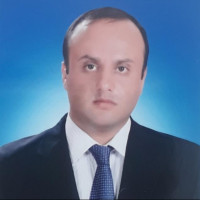
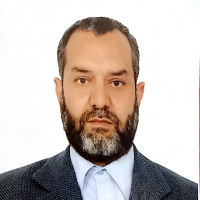
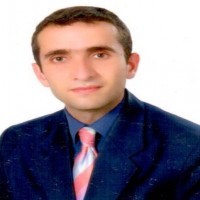
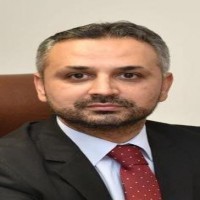
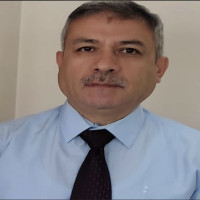
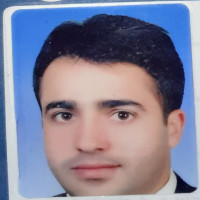
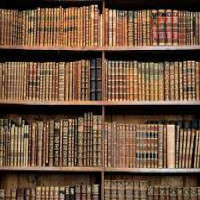
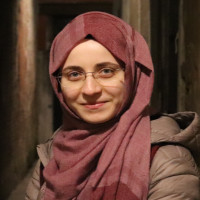
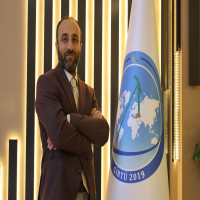





 Web
Web
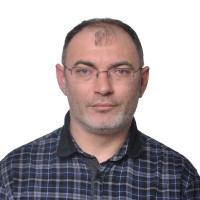
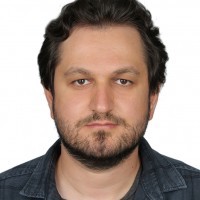


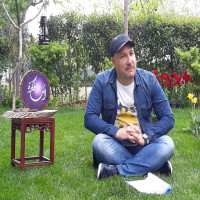
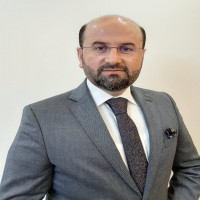
.
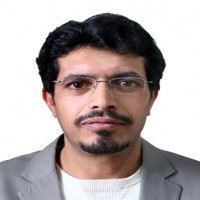
Aim & Scope
It is a scientific, peer-reviewed e-journal that aims to develop scientific and scientific publishing that is constantly evolving. It aims to increase the quality of publication of scientific studies, to contribute to their recognition and to increase the reputation of publications in national and international scientific circles.
Our journal is an academic refereed e-journal open to national participation.
Our journal is an academic refereed e-journal published in order to deal with original and qualified studies in the fields of Social Religion, Language, Philosophy, Behavior, Literature and Literary Reviews with a scientific approach. Our journal is published regularly twice a year, in JUNE and DECEMBER. If deemed necessary, special issue(s) are also published.
Journal of Young Intellectuals includes original, factual or review articles that bring innovation to the field in all modern dialects of Turkish and English, Arabic and Persian languages. In the articles published in our journal, research and publication ethical rules are followed.
TheJournal of Young Intellectuals the full texts of the papers presented vb.de domestic or international academic conferences, symposiums, workshops provided that they have not been published elsewhere.
Referee certificates are given to our professors who are referees in our journal.
Author Guidelines
1. Young Thinkers Journal is a scientific refereed journal and is published twice a year, in June and December.
2. The Editorial Board is the only authorized body that decides whether the articles submitted to the journal should be published or not. Editors are considered natural members of the Editorial Board.
3. The publication language of the journal is Turkish, Arabic, English and Persian. The decision to publish articles in other languages belongs to the Editorial Board.
4. Manuscripts submitted to the journal for publication are evaluated by at least two referees. Blind referee system is applied in the journal.
5. The Evaluation Reports of the Referee and the Editorial Board must be kept confidential for 5 years in an open manner.
6. Manuscripts submitted to the journal for publication are at least 150; It should contain a maximum of 200 words of Turkish and English titles and abstracts. Manuscripts should contain appropriate keywords (Key Words) in Turkish and English that describe the subject.
7. The references used in the manuscripts should be given as a list of references at the end of the article.
8. In the article, the author's name, title, institution and contact information should be clearly stated. All legal responsibility for the ideas in the manuscripts belongs to the author.
9. Manuscripts should not exceed 15000 words, 1.15 lines are spaced on one side of A4 paper; the main text of the font Palatino Linotype is 11 points, the footnotes are the Palatino Linotype is 8 (eight) or 9 (nine) points; The margins should be left so that the left is 3 cm, the top is 3 cm, the bottom is 3 cm and the right is 3 cm.
10. Subtitles of the manuscripts should be written in 12 font size and left-aligned.
11. If there is a graphic or image in the manuscript, it should be sent in jpeg format as a maximum size of 10x20 and as a separate file.
12. Journal of Young Intellectuals, Young Thinkers Journal also includes academic activities, interviews, book and article evaluations and criticism articles, with a maximum of 600 to 6000 words.
13. The journal also includes translated articles. Imprint information such as the author, date, where it was published, volume, number and page of the article to be translated must be fully stated and if it is not covered by copyright protection, publication permission must be obtained.
14. All rights of the published articles belong to Genç Mütefekkirler Dergisi. It can be cited provided that the source is shown.
15. The articles published in our journal are scanned in the plagiarism (turnitin) program. Articles with a similar rate not exceeding 20% are published.
16. APA in-text footnote system is used in the articles published in our journal. You can examine the examples below.
BOOKS
1. Single Author Book
Rule in the bibliography Surname of the author, Author's name and name of the work, place of publication and year.
Abdulbaki, Muhammad Fuad, Mu'jamu'l-Mufahras li Elfazi'l-Qur'ani'l-Karim, Daru al-Hadith, Cairo 1945.
Example in Text: (Abdulbaki: 1945, 67).
Maturidi, Abu Mansur Muhammad b. Mahmud, Ta'vilat-i Ahli's-Sunnah, Daru al-Qutbu'l-Ilmiyya, Lebanon, 2005.
Example in Text: (Maturidî: 2005, VI, 67).
2. Book with Two Authors
Sarıçam, İbrahim – Erşahin, Seyfettin, History of Islamic Civilization, TDV Yay., Ankara 2019.
In Text: (Sarıçam-Erşahin: 2019, 54).
3. Books with More Than Two Authors
Karaman et al., Hayrettin, Qur'an Yolu Türkçe Meal ve Tafsir, DİB Yayınları, Ankara 2012.
Inside the Text: (Karaman et al.: 2012, III, 45).
ARTICLES
1. Single Author Article in Periodicals
Yılmaz, Musa Kazım, "Etiquette Highlighted by Surat Hujurat", Harran Univ. Journal of Divinity Faculty, (38), 2017, 1-30.
In Text: (Yılmaz: 2017, 35.)
SCIENTIFIC MEETING AND SYMPOSIUM
Temel, Ahmet Vefa, "Islam's View of Irritability", International Symposium on Misperceptions and True Islam, Şanlıurfa 2016, 68-95.
In-text: (Baseline: 2016, 80)
ENCYCLOPEDIA
Ögüt, Salim, "İhram", DİA, TDV İslam Ansiklopedisi, İstanbul 2000.
Example in Text (Öğüt: 2000, IV, 70)
Ethical Principles and Publication Policy
In addition to complying with the writing rules of the articles to be published in the In addition to complying with the writing rules of the articles to be published in the Young Thinkers Journal, it should have an academic, simple and integrative language for society. Articles with divisive and marginalizing language are not accepted. In the studies published in our journal, compliance with national and international ethical rules and research and publication ethics is required.
AUTHORS
The following mandatory documents must be uploaded for the ethics committee documents such as surveys, interviews, etc. conducted in the field of Social Sciences.
1. It is mandatory to take data from individuals for studies/articles where data needs to be collected using scales, surveys, interviews and other data collection tools.
2. The author must have received approval from the Ethics Committee of the university to which he is affiliated.
3. In studies requiring ethics committee permission, information about the permission (board name, date and number no) should be included in the method section and also on the first / last page of the article.
4. In case reports, it is necessary to include information in the article that the informed voluntary consent / consent form has been signed.
IN ADDITION;
It is the author's responsibility that the submitted article is of a quality that will contribute to academic fields.
The studies should be original and based on research.
The article should not be sent to different journals at the same time.
It should be ensured that the other authors whose names will be written in the article contribute to the research. It is against scientific ethics to show people who do not have academic contributions as additional authors or to rank authors with non-scientific criteria such as title, age and gender, regardless of the order of contribution.
It is assumed that the authors who submit articles to the journal have read and accepted the publication and writing principles of the journal and the authors are deemed to have committed to what is expected of them in these principles.
Citations and bibliography should be complete.
Authors should take care to provide the documents and information requested by the editor in a timely manner during the processing process.
Authors should make the referee evaluations appropriately and in a timely manner and indicate through the system that the necessary changes have been made.
Authors should inform the editor of the deficiencies or erroneous situations they see in the evaluation processes in a timely manner.
Authors should read the writing, evaluation and publication rules of the journal well and act according to these criteria.
Authors should know that they do not have the right to sort and select numbers for their accepted publications. They should act knowing that they can only give an opinion to the editor for the order of publication or issue and that this opinion will be decided by the editorial board.
Care is taken to publish an article sent to the journal at the end of the process in which it is sent. However, in accordance with the decision of the editorial board, the decision on this issue belongs to the editorial board.
Authors should take into consideration the Scientific Research and Publication Ethics Directive also specified by the Council of Higher Education.
EDITORS:
Editors will pay attention to the criteria requested by Ulakbim and determined below.
It should be constantly in search of innovations in order to improve the journal and manage the processes well.
In order for the authors to use the process well, they should declare the detailed necessary information visibly on the journal page.
The submitted work's Copyright Transfer Form and Similarity Report should check the Ethics Permit (if necessary).
Accept articles appropriate to the purpose and scope of the journal.
Impact requires board approval; live experiments, surveys, interviews, etc. should check the permission dates of the Ethics committee.
The article should definitely be taken through the dergipark system. should not manage the article processes via mail.
Provide the necessary information and documents to the referees.
Should not use a derogatory style towards the Author and Referees.
Attention should be paid to the confidentiality of the referees.
It is not possible for the referee to share the study with another person or to include it in the evaluation process without the permission of the editor. The editor should control this process and intervene when necessary.
Check whether the author has previously published the study and, if so, whether he has explicitly declared this.
In order for the evaluation processes to run healthily, the system must be constantly checked.
When necessary, the referee should change.
The evaluation of the rejection or acceptance of an article should be determined according to the opinions of the referees.
The decision process of an article belongs entirely to the editor. Referee evaluations are effective elements in the decision-making process. it should have an academic, simple and integrative language for society. Articles with divisive and marginalizing language are not accepted. In the studies published in our journal, compliance with national and international ethical rules and research and publication ethics is required.
AUTHORS
The following mandatory documents must be uploaded for the ethics committee documents such as surveys, interviews, etc. conducted in the field of Social Sciences.
1. It is mandatory to take data from individuals for studies/articles where data needs to be collected using scales, surveys, interviews and other data collection tools.
2. The author must have received approval from the Ethics Committee of the university to which he is affiliated.
3. In studies requiring ethics committee permission, information about the permission (board name, date and number no) should be included in the method section and also on the first / last page of the article.
4. In case reports, it is necessary to include information in the article that the informed voluntary consent / consent form has been signed.
IN ADDITION;
It is the author's responsibility that the submitted article is of a quality that will contribute to academic fields.
The studies should be original and based on research.
The article should not be sent to different journals at the same time.
It should be ensured that the other authors whose names will be written in the article contribute to the research. It is against scientific ethics to show people who do not have academic contributions as additional authors or to rank authors with non-scientific criteria such as title, age and gender, regardless of the order of contribution.
It is assumed that the authors who submit articles to the journal have read and accepted the publication and writing principles of the journal and the authors are deemed to have committed to what is expected of them in these principles.
Citations and bibliography should be complete.
Authors should take care to provide the documents and information requested by the editor in a timely manner during the processing process.
Authors should make the referee evaluations appropriately and in a timely manner and indicate through the system that the necessary changes have been made.
Authors should inform the editor of the deficiencies or erroneous situations they see in the evaluation processes in a timely manner.
Authors should read the writing, evaluation and publication rules of the journal well and act according to these criteria.
Authors should know that they do not have the right to sort and select numbers for their accepted publications. They should act knowing that they can only give an opinion to the editor for the order of publication or issue and that this opinion will be decided by the editorial board.
Care is taken to publish an article sent to the journal at the end of the process in which it is sent. However, in accordance with the decision of the editorial board, the decision on this issue belongs to the editorial board.
Authors should take into consideration the Scientific Research and Publication Ethics Directive also specified by the Council of Higher Education.
EDITORS:
Editors will pay attention to the criteria requested by Ulakbim and determined below.
It should be constantly in search of innovations in order to improve the journal and manage the processes well.
In order for the authors to use the process well, they should declare the detailed necessary information visibly on the journal page.
The submitted work's Copyright Transfer Form and Similarity Report should check the Ethics Permit (if necessary).
Accept articles appropriate to the purpose and scope of the journal.
Impact requires board approval; live experiments, surveys, interviews, etc. should check the permission dates of the Ethics committee.
The article should definitely be taken through the dergipark system. should not manage the article processes via mail.
Provide the necessary information and documents to the referees.
Should not use a derogatory style towards the Author and Referees.
Attention should be paid to the confidentiality of the referees.
It is not possible for the referee to share the study with another person or to include it in the evaluation process without the permission of the editor. The editor should control this process and intervene when necessary.
Check whether the author has previously published the study and, if so, whether he has explicitly declared this.
In order for the evaluation processes to run healthily, the system must be constantly checked.
When necessary, the referee should change.
The evaluation of the rejection or acceptance of an article should be determined according to the opinions of the referees.
The decision process of an article belongs entirely to the editor. Referee evaluations are effective elements in the decision-making process.
Price Policy
An editorial service fee of 500 TL is charged from the authors who want to submit an article to the Journal of Young Thinkers. Whether the article is published or not, this fee is non-refundable. If the article is not accepted for publication, the author can submit a second article to the journal without paying an additional service fee. Based on the decision taken by the Council of Higher Education on March 7, 2019:
"Journals that charge a fee or additional fee from the author for publication after the acceptance of the article (Predatory/Questionable Journals) cannot be used in the application conditions (declaration) for associate professorship, as this relationship involves a conflict of interest. However, it should be added to the resume and the list of works.
In this context, the following journals can be used in the associate professorship application requirements (declaration):
- Journals that receive a fee during article submission - regardless of acceptance/rejection,
- Journals that charge a fee to make the relevant article open access, although they work on a subscription basis,
- Journals that do not charge any fees from the authors during the article printing process
It receives the editorial service fee for the Journal of Young Thinkers at the time of application. For this reason, you can easily use our journal in Associate Professor applications. Respectfully announced to our authors.


